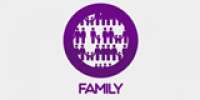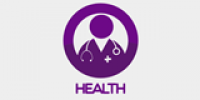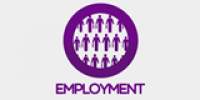ILGA-Europe launches its very first Annual Review of Human Rights Situation LGBTI in Europe and updated Rainbow Map
Today ILGA-Europe is launching its very first Annual Review of the Human Rights Situation of Lesbian, Gay, Bisexual, Trans and Intersex People in Europe 2011 supplemented by the Rainbow Map.
These publications will be launched at an event marking the International Day against Homophobia and Transphobia in the presence of Cecilia Malmström, EU Home Affairs Commissioner, UN officials, civil society organisations and LGBTI activists from Eastern Europe.
The Annual Review and the Rainbow Map give an overall picture of the current state of play of the human rights of LGBTI people in Europe.
From a legal perspective, the ILGA-Europe Rainbow Map shows that none of the countries in Europe can claim to provide full legal equality for LGBTI people. The five highest scoring countries – out of the maximum of 30 points – are:
• United Kingdom (21 points)
• Germany and Spain (20 points each)
• Sweden (18 points)
• Belgium (17 points)
10 countries are in the negative zone and do not meet the basic requirements of human rights standards:
• Moldova and Russia (-4.5 points each)
• Armenia, Azerbaijan, FYR Macedonia and Ukraine (-4 points each)
• Monaco, San Marino and Turkey (-3 points each)
• Belarus and Liechtenstein (-1 point each)
A simple fact remains: on average, the level of legal equality continues to be very low in most countries.
The Annual Review complements this information and provides insights into the political and social developments which contribute to advancing legal and social recognition of rights across the region.
On the positive side, great progress was achieved in 2011 at the international and European levels in terms of recognition of the grounds of sexual orientation and gender identity particularly in the fields of asylum and protection from violence. Various countries continued moving towards the extension of legal recognition and equal rights to rainbow families; and there are a number of legal proposals towards the introduction of humane laws regarding the change of legal name and gender of trans people.
On the negative side, in some countries there is either no progress whatsoever, or worse, there are moves towards the adoption of legislation criminalising the ‘propaganda of homosexuality’.
Evelyne Paradis, Executive Director of ILGA-Europe, said:
“ILGA-Europe is very pleased to launch a new tool providing a comprehensive human rights review of the situation of LGBTI people in all 49 European countries. Our Rainbow Map has already proven to be very useful and popular tools on the legal situation. The Annual Review goes a step further and looks into the social and political context which influences the lived experiences of LGBTI people.
Formal equality is only a step towards full social inclusion. And even here we see big differences and gaps across Europe – not a single country can claim full legal equality, let alone social equality. Therefore we hope that our Annual Review will provide a good basis for sharing of best practices and foster a dialogue between the States and LGBTI civil society.”
Background information:
Annual Review of the Human Rights Situation of Lesbian, Gay, Bisexual, Trans and Intersex People in Europe
This annual publication will document legislative, political and social developments relevant to LGBTI people in each European country, as well as at international (United Nations) and European level (Council of Europe, EU and the Organization for Security and Cooperation in Europe). The aim is to complement the global documentation of the human rights situation from an LGBTI perspective on a yearly basis.
While the 2011 edition of the Annual Review covers various cases of violence, hatred and discrimination against LGBTI people (at times perpetrated at the hands of the State), the scope of the document is not that of naming and shaming, or pointing fingers at specific countries. This publication should instead serve as a tool for the exchange of best practices and policies, and as an open invitation for enhanced cooperation between governments and LGBTI civil society.
ILGA-Europe Rainbow Map

ILGA-Europe Rainbow Map reflects the national legal human rights situation of LGBTI people in a simple format. The Rainbow Map ranks all European countries according to their legislation and administrative practices that have direct impact on the human rights situation of LGBTI people.
This project does not represent and rank the countries according to the social attitudes. While this is an important indicator and various public option polls are conducted in different countries, it currently remains impossible to collect comparable data in all 49 European countries to draw credible conclusions.

ILGA-Europe Rainbow Map rates each European country’s laws and administrative practices according to 42 categories and ranks them on a scale between 30 (highest score: respect of human rights and full legal equality of LGBT people) and -12 (lowest score: gross violations of human rights and discrimination of LGBT people).
42 categories cover a wide spectrum of legislation and administrative practices in the areas of
• asylum (explicit reference to sexual orientation as a ground on which it is legitimate to claim asylum)
• equality and non-discrimination (explicit references to sexual, orientation, gender identity and intersex people)
• bias motivated speech/crime (explicit reference to sexual orientation, gender identity and intersex people in legislation dealing with hate speech/crime)
• family (different forms of recognition of same-sex partnerships, parenting entitlements and ability for trans people to legally marry a person of the other gender)
• freedom of association, assembly and expression (obstruction/no obstruction from the States on the exercise of these freedom, new laws banning ‘homosexual propaganda’)
• legal gender recognition (availability of procedures for legal gender recognitions and a number of discriminatory requirements)

 Print HTML
Print HTML









